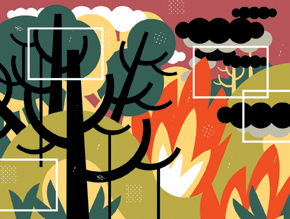 daniel buenoFAPESP will hold another edition of the FAPESP Week international symposium in October. For the first time, the event will take place in Germany, in the city of Munich, under a cooperation agreement between the State of São Paulo and the Free State of Bavaria. From October 15 to 17, researchers from São Paulo and from German research institutions will have an opportunity to share experiences and discuss scientific collaboration in the fields of biotechnology, nanotechnology, energy and the environment. FAPESP Week Munich will be held in the Deutsches Museum, in collaboration with the Ministry of Education, Science and Arts of the State of Bavaria and the Bavarian University Center for Latin America. The event will also mark the forging of closer ties between FAPESP and the Max Planck Society for the Advancement of Science, Germany’s principal basic research organization, which is headquartered in Munich (see Pesquisa FAPESP Issue Nº 217). Since 2011, FAPESP has been organizing scientific symposia designed to promote science carried out in São Paulo and stimulate international collaboration. Previous symposia have been held in the cities of Washington, Morgantown, Cambridge, Charlotte, Chapel Hill and Raleigh (United States), Toronto (Canada), Salamanca and Madrid (Spain), Tokyo (Japan), London (England) and Beijing (China). And on October 28 and 29, FAPESP and the U.S. Department of Energy Office of Science, partnering with the Wilson Center, will hold a symposium in Washington to present an overview of ongoing research in connection with the Green Ocean Amazon (GOAmazon) experiment—a call for proposals issued in late 2013 by the two institutions and the Amazonas Research Foundation (FAPEAM). The purpose of the event is to stimulate new collaborative research on the role of the Amazon in global climate change. “GOAmazon is a unique experiment aimed at gaining a comprehensive understanding of how the Amazon works and how the regional ecosystem is susceptible to climate change. It is a strategic initiative focused on developing long-term, science-based public policy,” says Paulo Artaxo, a professor at the Physics Institute of the University of São Paulo (USP) and member of the Area Panel for the FAPESP Research Program on Global Climate Change. As a member of one of the event panels, he will give a presentation on the impact of the Manaus plume (a mass of polluted air) on the regional climate, and its interaction with the volatile organic compounds emitted by the forest vegetation.
daniel buenoFAPESP will hold another edition of the FAPESP Week international symposium in October. For the first time, the event will take place in Germany, in the city of Munich, under a cooperation agreement between the State of São Paulo and the Free State of Bavaria. From October 15 to 17, researchers from São Paulo and from German research institutions will have an opportunity to share experiences and discuss scientific collaboration in the fields of biotechnology, nanotechnology, energy and the environment. FAPESP Week Munich will be held in the Deutsches Museum, in collaboration with the Ministry of Education, Science and Arts of the State of Bavaria and the Bavarian University Center for Latin America. The event will also mark the forging of closer ties between FAPESP and the Max Planck Society for the Advancement of Science, Germany’s principal basic research organization, which is headquartered in Munich (see Pesquisa FAPESP Issue Nº 217). Since 2011, FAPESP has been organizing scientific symposia designed to promote science carried out in São Paulo and stimulate international collaboration. Previous symposia have been held in the cities of Washington, Morgantown, Cambridge, Charlotte, Chapel Hill and Raleigh (United States), Toronto (Canada), Salamanca and Madrid (Spain), Tokyo (Japan), London (England) and Beijing (China). And on October 28 and 29, FAPESP and the U.S. Department of Energy Office of Science, partnering with the Wilson Center, will hold a symposium in Washington to present an overview of ongoing research in connection with the Green Ocean Amazon (GOAmazon) experiment—a call for proposals issued in late 2013 by the two institutions and the Amazonas Research Foundation (FAPEAM). The purpose of the event is to stimulate new collaborative research on the role of the Amazon in global climate change. “GOAmazon is a unique experiment aimed at gaining a comprehensive understanding of how the Amazon works and how the regional ecosystem is susceptible to climate change. It is a strategic initiative focused on developing long-term, science-based public policy,” says Paulo Artaxo, a professor at the Physics Institute of the University of São Paulo (USP) and member of the Area Panel for the FAPESP Research Program on Global Climate Change. As a member of one of the event panels, he will give a presentation on the impact of the Manaus plume (a mass of polluted air) on the regional climate, and its interaction with the volatile organic compounds emitted by the forest vegetation.

